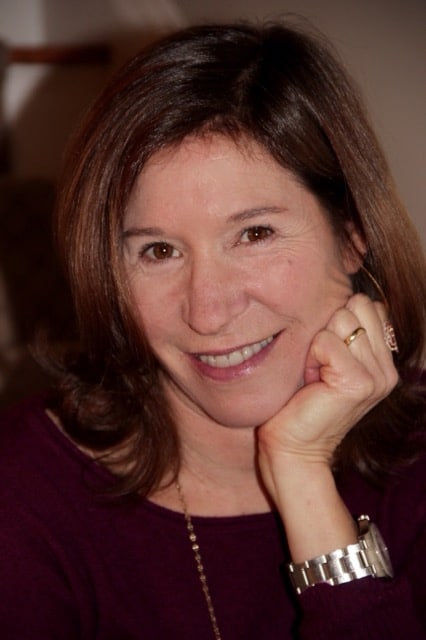by Caren Osten
I first heard Sharon Salzberg speak at the Tibet House in New York City several years ago. With a $10 donation, I became the occupant of a floor cushion for two hours, during which Sharon’s gentle voice and intentional tone guided the crowd through teachings and meditations on loving-kindness, or metta, and the sort of awareness that can transform a simple activity, like sipping a cup of tea, into a deeply mindful one. With every chance, I’ve been listening to her voice ever since—in person, online, and on the page.
As an 18-year-old college student fraught with an emotionally painful childhood, Sharon—now a prolific author and meditation teacher—had heard that meditation could possibly bring greater happiness. So she traveled to India on an independent study project to find out, learning and developing her own practice during a three-year period. Since returning to the United States in 1974, she has been paying forward the practices of mindfulness and loving-kindness meditation to masses of people during retreats and classes, in her writings, and via her online Real Happiness Meditation Challenge, which takes place every February—this year, with the goal of 5,000 registrants, it ended up with 14,000.
So how does meditation lead to greater happiness? “Loving-kindness is designed to elicit positive emotions,” says Sharon. “We are stretching the way we pay attention by looking for the good in ourselves or wishing ourselves well though loving-kindness.” May I be safe. May I be happy. May I be healthy. May I live with ease—the phrases we repeat silently as she guides us.
Taking the concept further, Sharon shares that we can also send loving-kindness to others—those in need, those we love, and those we might typically ignore, like the dry cleaner or the checkout person at the market. May they be safe. May they be happy. May they be healthy. May they live their life with ease. “By consciously paying attention and wishing them well, we are creating the basis for a genuine sense of connection,” she says.
Turning to Barbara Fredrickson’s positive psychology theory of “broaden and build,” Sharon likens the transformative qualities of positive emotions to loving-kindness meditation, which broadens our perspective and builds our inner resources. “Some of it is about generating positive emotions, and a lot of it is about loosening the grip of negative ones, such as greed, anger, and jealousy,” she explains. “This allows us to develop a different relationship with our emotions, one that is more balanced and openhearted.”
So when my airplane was delayed recently—leaving me with five-plus hours in a small Colorado airport and a subsequent missed connection to my hometown—I thought of Sharon’s guidance and sent some loving-kindness not only to myself and my family, but also to the airline ticketing agent and surrounding travelers. In an effort to be mindful, I called up what Sharon had shared with me—that it’s our awareness of an emotion—frustration, in my case—that can elicit positive feelings. “Within the awareness, there’s a tremendous kind of positive emotion,” she says. “It’s not what you’re aware of, it’s how you are aware.” So, while I felt the anger, I tried not to judge it, and to be kind to myself. It’s that relationship to the emotion that can be transforming.
Fear is another emotion that can stand in our way, at times disguising itself as anger or sadness. There was a time, Sharon admits, that even she—who has shared a stage with the Dalai Lama—was afraid to speak in public. Back in the mid-1970s, she was leading retreats with Joseph Goldstein and Jack Kornfield, and was too fearful to give the evening talk to their students. “One day, I realized that they are all loving-kindness talks,” she said. “It’s about connecting to people and not about being perfect; it’s not about imparting information but about encouraging people to continue their practice.” That’s what she’s been doing ever since.
Be sure to check out Sharon Salzberg in the Authentic Leadership free webinar series.
This article was originally published at kripalu.org. ©2016, Kripalu Center for Yoga & Health. All rights reserved.
Caren Osten is a positive psychology life coach and freelance writer, covering psychology, education and travel. Her articles have been published in the New York Times, Psychology Today and National Geographic Traveler, among others. Read more about her work at carenosten.com.










